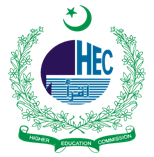The United Nations' Involvement in Bangladesh's Liberation War: A Detailed Analysis
Keywords:
Liberation War, Bangladesh, United Nations, International Intervention, Conflict Resolution.Abstract
On March 26, 1971, the Bangladeshi independence struggle against domestic imperialism and ethnic discrimination in Pakistan got underway. March 26, 1971, saw the start of the Bangladeshi independence movement against domestic imperialism and ethnic discrimination in Pakistan. The United Nations gave relief and humanitarian activities first priority starting in the Liberation War and continuing until November. The UN Security Council was called in when India and Pakistan entered the Liberation War on December 3. The Security Council meetings continued as different suggestions and counterproposals were presented. In the Security Council, there was a clash between the USSR and US. While the USSR helped Bangladesh, China and the US helped Pakistan. Keeping their positions neutral, France and Britain did not cast votes in the Security Council. The Security Council could not therefore come to an agreement. On December 6, after discussion and an official decision, the Security Council sent the agenda to the General Assembly. On December 7, a resolution headed "Unity Formula for Peace" was overwhelmingly approved at the General Assembly. As India and Bangladesh rejected this idea, the US called a second Security Council session. Sessions of the Security Council were held at various intervals between December 12 and 21. Everything changed dramatically when Bangladesh gained its independence on December 16. The protracted Bangladesh war was essentially resolved on December 21 when the Security Council unanimously approved a ceasefire resolution.
Downloads
Published
Issue
Section
License
Copyright (c) 2024 Md. Firoz Al Mamun, Md. Mehbub Hasan, Md. Ruhul Amin

This work is licensed under a Creative Commons Attribution-NonCommercial 4.0 International License.








